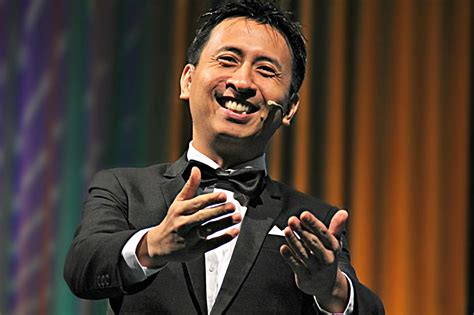A Quote by Bruce Barcott
This is what we see when we look up at Rainier, the beauty, the horror, the awe the unbelievability of size that confirms our own consequence on this earth. We look at the mountain, like god and can imagine nothing larger. Its incompressible life-span reminds us of the fleeting mortality of our own bones. It looms over our lives on clear days and and stay present but hidden through the clouds of winter. Like god it remains everywhere forever.
Related Quotes
Our time on earth and our energy, intelligence, opportunities, relationships, and resources are all gifts from God that he has entrusted to our care and management. We are stewards of whatever God gives us. This concept of stewardship begins with the recognition that God is the owner of everything and everyone on earth. ... We never actually own anything during our brief stay on earth. God just loans the earth to us while we're here. It was God's property before you arrived, and God will loan it to someone else after you die.
Everyone has noticed how hard it is to turn our thoughts to God when everything is going well with us... While what we call 'our own life' remains agreeable, we will not surrender it to Him. What, then, can God do in our interests but make 'our own life' less agreeable to us, and take away the plausible sources of false happiness?
A moral character is attached to autumnal scenes; the leaves falling like our years, the flowers fading like our hours, the clouds fleeting like our illusions, the light diminishing like our intelligence, the sun growing colder like our affections, the rivers becoming frozen like our lives--all bear secret relations to our destinies.
Do we not see God at work in our circumstances? Dark times are allowed and come to us through the sovreignty of God. Are we prepared to let God do what He wants with us? Are we prepared to be separated from the outward, evident blessings of God? Until Jesus Christ is truly our Lord, we each have goals of our own which we serve. Our faith is real, but it is not yet permanent. And God is never in a hurry. If we are willing to wait, we will see God pointing out that we have been interested only in his blessings, instead of God Himself.
Our work is not to save souls, but to disciple them. Salvation and sanctification are the work of God's sovereign grace, and our work as His disciples is to disciple others' lives until they are totally yielded to God. One life totally devoted to God is of more value to Him than one hundred lives which have been simply awakened by His Spirit. As workers for God, we must reproduce our own kind spiritually, and those lives will be God's testimony to us as His workers. God brings us up to a standard of life through His grace, and we are responsible for reproducing that same standard in others.
There are two gods. The god our teachers teach us about, and the God who teaches us. The god about whom people usually talk, and the God who talks to us. The god we learn to fear, and the God who speaks to us of mercy. The god who is somewhere up on high, and the God who is here in our daily lives. The god who demands punishment, and the God who forgives us our trespasses. The god who threatens us with the torments of Hell, and the God who shows us the true path.
There are two gods. A god who casts us off because of our sins, and a God who calls to us with His love.
As I experience it, appreciation of beauty is access to the soul. With beauty in our lives, we walk and carry ourselves more lightly and with a different look in our eyes. To look into the eyes of someone beholding beauty is to look through the windows of the soul. Anytime we catch a glimpse of soul, beauty is there; anytime we catch our breath and feel "How beautiful!," the soul is present.
I think our mental picture of God is the most important fact about our life. All other things being equal, the beauty of our life won't outrun the beauty of our vision of God. Unfortunately, the God that many Christians envision is not completely Christ-like, but is rather influenced by the violent depictions of God in the Old Testament.
In our whole life melody the music is broken off here and there by rests, and we foolishly think we have come to the end of time. God sends a time of forced leisure, a time of sickness and disappointed plans, and makes a sudden pause in the hymns of our lives, and we lament that our voice must be silent and our part missing in the music which ever goes up to the ear of our Creator. Not without design does God write the music of our lives. Be it ours to learn the time and not be dismayed at the rests. If we look up, God will beat the time for us.
The mystery of the spiritual life is that Jesus desires to meet us in the seclusion of our own heart, to make his love known to us there, to free us from our fears, and to make our own deepest self known to us Each time you let the love of God penetrate deeper into your heart it leads to a love of ourselves that enables us to give whole-hearted love to our fellow human beings. In the seclusion of our hearts we learn to know the hidden presence of God; and with that spiritual knowledge we can lead a loving life.































